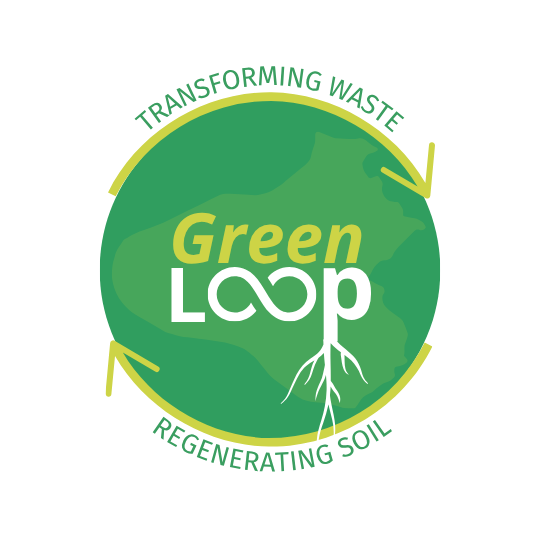Our Story
From Waste to Resource
At Sustainable Taranaki, we’ve always believed that what many call “waste” can actually be a resource. For Mieke, our Organic Programmes Manager, it’s a mindset: organic material doesn’t belong in landfill. It belongs back in the soil, building resilience, nourishing food systems, and strengthening communities.
Mieke has been part of Sustainable Taranaki for four years, leading projects in food resilience, composting, and organic waste management.
Sophie, our Business Support Manager, joined 18 months ago, helping local organisations cut waste, embrace circular systems, and reduce emissions.
Together, Mieke and Sophie share a passion for creating practical, local solutions that deliver real impact.
How Green Loop Began
In May 2024, during a sustainable business support pilot funded by New Plymouth District Council, Mieke and Sophie worked with five local businesses to explore their waste streams.
They carried out two audits per business, and what was found was staggering: in just 3–5 days, the sheer volume of waste produced was overwhelming, and much of it was organics.
That discovery lit a spark. Over the summer, Sophie and Mieke were left asking themselves: “how can we stop this organic material from going to landfill? How can we return it to the whenua, where it belongs?”
By January 2025, Sustainable Taranaki applied for support from the Ministry for the Environment’s Waste Minimisation Fund and began shaping a business case. The idea that emerged became Green Loop, a local, circular solution to Taranaki’s food waste problem.
The Inspiration: Bokashi & Beyond
A pivotal moment came in November 2024, when Sophie attended the National Permaculture Hui at the Green School. There, she heard Betsy and David Kettle of City to Farm share their model: using Bokashi to cleanly capture food scraps, then returning them to the soil as nutrient-rich compost.
The system was simple and scalable:
Businesses fill sealed buckets or bins with food scraps.
Trained staff add Zing, a food-safe compost starter that prevents odours.
Full bins are collected weekly and replaced with clean ones.
The outcome? Food waste transformed into living compost that improves soil health, builds resilience against climate change, and supports local farmers to grow more diverse and valuable crops.
This approach showed us that with the right partners and the right system, Taranaki could do the same, and do it locally.
Closing the Loop for Taranaki
Green Loop officially took shape in 2025. Our mission is simple: keep food waste out of landfill and put it back into the soil.
Here’s how it works:
We collect food scraps from local businesses and events.
They’re pre-processed using Bokashi, a low-emission fermentation method.
Composting continues with the Johnson Su system, producing microbe-rich compost.
That compost is returned to farms, community gardens, and marae — improving soil, reducing reliance on synthetic fertilisers, and sequestering carbon.
For businesses, it’s a practical way to reduce waste costs, meet sustainability commitments, and play a visible role in climate action. For farmers, it’s access to compost that restores soils compacted by decades of intensive agriculture. For our community, it’s a step toward food security, sovereignty, and resilience.
Looking Ahead
Green Loop is more than a waste service, it’s a movement to reconnect Taranaki’s food system. By working together, we can transform waste into opportunity and climate challenges into soil solutions.
This is shovel-ready climate action, circular by design, and rooted in the values of our region.
Our kaupapa is clear:
Cut emissions.
Build soil.
Empower communities.
Together, we can close the loop, for Taranaki, and for the future.
Join us today!
We are taking expressions of interest for food waste collection ↩️

